|
I've just been sailing for a week, in the Coral sea on a 45ft yacht. There is a whole language of sailing used to describe every nook and task on the boat. It is a distinctive language, not only do new words describe aspects and items I've never known before, but new words describe known elements uniquely. A sail is not a sail it is a main, or a headsil, a jib or genoa. A rope is not a rope, its a line or a sheet. Shade cloth is called a bimini. Left is actually port. Right ceases to exist and becomes starboard. The front of the boat is not 'the front' it's the bow. The back is the stern. The kitchen is the galley, the toilet is the head. Other interesting words flew about the cabin, like skeg, jammer, transom, stanchion and vang. While all the words could seem like flotsam and jetsam to someone who is not intimate with the vessel or the sport, these words are far from whimsical descriptions of odds and ends. To a sailor who literally sees the sea differently, who reads the wind and who feels the tidal depth and direction, the bespoke linguistics are more than meaningful. They belong to a world that is storied with ancient practices, voyages and skilled discovery. They recreate a world view so the boat is connected to its past and so encounters specifics, detail and meaning in 'things' and occurrences like wind and tide and swell. Many words describe elements that may not occur as relevant to the greater population, but to the sailor, this felt, spoken and oft sung knowledge describes the nuances of the lands, skies and waters and the boats relationship with them in ways that honours all its parts and with the immense gravity of all beings who have lived through stories of being driven off course by one of its elements. It reminds me how language is creative. Language lives in how we speak and what we say. We have been taught to think that our words describe the world. We typically think of language as words used to describe an implicitly external world. However, rather than descriptive of a fixed externality, our words are creative. We create the world with our language. Words can eliminate or create new perspective. Our habits of speech and patterns of naming reflect and create worldviews and our relationship with nature. How we name, describe and label objects, sports, animals, people and places affects how we think of them. The Brisbane River is not a discreet thing with clear boundaries, despite its singular name. It is fed by several rivers, creeks and tributaries which are formed by rain and runoff, and the river's end cannot be demarcated, it simply merges into the Bay which is the sea. Naming a river, might make us think that a river is a fixed thing. Real water is very different and more dynamic than we may have words to describe. A lack of words reflects a lack of detail but this is not accurate, only eliminates detail, nuance, story and flow from our awareness. A study by Ethnobiologists Jonathon Loh and David Harmon found a correspondence between loss of diversity in ecologies, including loss of species of plants and animals, and the loss of language. This correlation led them to study the link between language and biodiversity. In their research report Biocultural Diversity: Threatened Species, Endangered Languages, they discuss their findings that show a parallel relationship between the destruction of forest habitat and language loss.
Right now, one in four of the world’s 7000 languages are becoming extinct, in a parallel relationship with the decline of species, habitats, particularly forests, and biodiversity. As biodiverse habitat is eliminated, both land and sentences are cleared of context. When plants, species, living trees and animals are destroyed, words are lost from human cultures, conversations, discourses and speech. The extinction of language is highly correlated to biodiversity loss, habitat loss, land clearing and deforestation. Their work suggests that living biodiverse environments are connected to human language. Thriving ecologies have strong links with the robust levels of diversity in language communities across our world. The more biodiversity, the more language diversity. Correspondingly, the greater the health of ecologies, the greater capacity of languages. My experience learning new words, opened my perception to the whole new world of sailing. I literally saw the sea differently as we were sailing home. I saw countless colours in the waves, that I previously did not see. I saw wind patterns on the surface of the water. I read the clouds. A storm was coming. I could feel and see where the wind was coming from. As we travelled, I felt the awareness of land and water forms around and beneath me, the subtilties, nuances and variabilities of the experience wasn't mute, because I learned words for it. Perhaps we can re-imagine the power of language and its role in creating worldviews and nurturing ecological biodiversity. We can appreciate how First nations traditional custodians had language to describe a stories, sung, dreamt and nurtured world and their relationship with it. Rather than inert labels and naming mechanisms, I would prefer language to be imagined as an ecology of thought and expression. The homelands of our understanding. It guides, leads and evokes our environmental imagination. I see language as a creative force that carries and shares our imaginaries, both false and accurate. I hope the words I've crafted here for this blog, form an internal outing in your mind so you can see the huge land and waterscapes uniquely populated with a thousand words that each call up the ten thousand stories of encounters humans have had will place within it.
Can we begin to imagine the health of both language and biodiversity as inter-dependent? Biodiversity is the collective, living community of life on our planet. Can we consider that language is a pivotal marker of the health or demise of ecological biodiversity? Like the new words I found on a boat, language lives and has meaning because of its origin as well as what they seek to describe. The wore words we say, keep and use the more biodiversity with thrive on our planet. Next time you open your mouth or reach for the computer,, remember your words are creative, they each have a story, they all have a past, a song, and they create more than describe what ever you are talking or writing about.
0 Comments
"Our blindness to the loss of the living world is deadly", George Monbiot Last week, I wrote about the loss of nature, how it can be seen as external or , more subtly, played out through the removal of nature from our sense of self, civilisation and community. Many have come to live as though we are not reliant on nature. While we cannot survive without breath, water, food, space and time, or love from each other, we don't live like we are utterly dependant, we live like we survive by our own initiative.
The question that interests me is this: Is this because our reliance has been disguised and disconnected or because we have lost our capacity to imagine the full story and the bigger picture that connects our daily lives with the whole thing? We have all come to expect the prompt delivery of nature’s supply upon purchase of food, water, real estate, our beloved pets, and fuel, but the true nature of these substances are quite removed from our experience of its consumption. Concrete, windows, phones, electricity and sewage all come from earth, but we we don't think like this anymore. We don't see this anymore. Perhaps it is not our fault. These connections have become hard for us to see. We consume the fruit of trees, but they are picked from supermarket shelves. We devour the roasted husks of plant’s nuts and seeds without getting our hands dirty. We consume two dollar milk made by generations of families of both animals and people without seeing the grass or bodies that made it. We walk on floorboards that were forests but their transition from tree to floor is an unseen story. We write and draw on paper refined from trees that were forests, and again this connective origin is numb to us. We switch on lights made by electricity produced by burning age-old fossilised trees that fell and were buried millions of years ago. While the energy of these ancient lives power domestic and industrial lighting, heating and cooling, technology and the internet, this source is concealed by a flick of a switch. How should we hold our incomplete, troubled vision? As something that obscures our essential dependency and connectedness? We heat our homes and cook our food with gas gleaned from scraping the gunk of millions-of-years old invertebrates from beneath the ocean’s floor. We happily eat sugar and honey by the spoonful, but the labour of bees, and their hard work, and the acres of plants and the months of harvest and refinement are all concealed by plastic packaging. Even the spoon is made of earth. Every single bee’s ambition to pollinate is fundamental to our survival, but we rarely recognise how flowers and bees are related to us personally. Similarly, scientists believe that phytoplankton contribute between 50 to 85 percent of the oxygen in Earth's atmosphere. We should be throwing them a party of thanks. But surprisingly, and in contrast to this interdependent connectivity, and in the face of natural disasters, humanity continues to purposefully devastate homelands, decimate ecological communities, destroy biodiversity, waste en masse, and remove the integrity of ecological systems. Still, plastic production is thriving. Co2 emissions are accelerating. Living landscapes are mowed, burnt, bulldozed, and demolished continuously and on purpose. What is missing here? We necessarily breathe the same air that is produced by phytoplankton, plants and trees. We daily sip the fluid pieces of the global water cycle that have dropped into our glasses from the clouds. Just like the planet, our bodies are between sixty and seventy percent water. Just like inside the earth’s mantle, the metals zinc, copper, iron and gold exist within our bodies and minds. Such naturally occurring life-parts are shared by humans, animals, soil, skies and plants. I think the loss of nature from our planet reflects its elimination from our consciousness. We have lost the vision that imagines our connectivity - that imagines our world as communities of diverse living beings that are irreplaceable and essential to all of life. We are forgetting the vital connection between habitats and our own happiness. The loss of nature is a tragic symptom of humanity’s misunderstanding and depreciation of wholeness and diversity. It is a reflection of a great and tragic loss of human capacity to imagine the big picture, the accumulative effect and the nature of inter-connectivity. This means, the problems are not exclusively environmental, it is not all ‘out there’ in external nature. The problems and the solutions can also be seen to be located in us. Despite the rhetoric of fighting the climate and the winning the war on waste, the project of sustainability can be seen as not only a battle with the world outside of us, but a project of humanity’s transformation. (Humanity means every single one of us). To me this is about human awareness of connectivity; our way of seeing ourselves and our world. While climate change requires high tech solutions and new infrastructure, it is also important to see our global environmental crisis as the world’s call to ourselves. Yes, we need worm farms and veggie gardens and less plastic and coal mines, desperately, and we also need to look at our own vision to see how our own mindsets have crafted the world. This re-orientation is as urgent as electrifying everything, getting off gas and hosting a circular, new, clean and green economy. Not only do we need to become ultimately responsible, but we also need to become aware of how we see and imagine beyond the surface appearance of things. Perhaps we need to begin re-seeing the world’s crises as artworks of human creation. The frustrating urge to write a blog implores me. It grabs me and plonks me at my desk, even on sunny days. In a similar way, somehow, the sky implores me to regard clouds of pollution, species extinction and multi-species injustice as emergencies that threaten everyone’s personal breath, food, family, and future with mature and awake responsibility. We cannot continue to see these threats as external. Their source is within us and so are the remedies. Can we consider sustainability as not solely about ‘the environment’ out there, but about us? It is not the dolphins and polar bears that need to change, it is us. The trees don’t need to get better at breathing in carbon dioxide any more than the oceans must work towards being a more efficient carbon sink. These problems are not ‘environmental’ but caused by humans and so require humanity to change. Today I consider sustainability an inside job. The call of sustainability is of the magnitude of the human soul. Let me badly suggest, if you are alive at this time, considering history and futures, then sustainability is a part of your purpose just as 'nature' constitutes our being. Thanks for reading. My family lost my dear stepmother last week, wife and best friend of my dear dad. I am urged to write about the nature of loss and the loss of nature.
We are losing nature. The scale and pace of the loss of nature on earth is unprecedented. The last 100 years have shown massive loss of biodiversity, habitats, species, ecological systems and communities. The pollution of our earth’s air, waterways, oceans and soil has reached beyond measurable levels to encompass whole-ecology breakdowns. Plastic is now in the food chain. Industrial chemicals are affluent in mother’s milk. Ocean water contains mercury. Air quality is so rich in carbon dioxide, methane and nitrous oxide that the earth’s climate is warming. Clean water is sold in plastic bottles, and in cities around the world masks must be worn because the exhaust-filled air is un-breathable. Bees that pollinate our edible plants are dying and animals once threatened are now extinct or only live in zoos. Our planet’s polar ice caps are melting and ocean temperatures are rising. Pollution by carbon particles and plastic have peaked at the highest levels ever recorded in human history. Terms like deforested and desertification and pacific gyres have been invented to describe the annihilation of ecologies, the removal of forests, the mountains of litter in the ocean and the creation of deserts where once arable land thrived. The nature of these environmental crises are global. This is the loss of nature, and its remedy is what we call 'sustainability'. While this is happening a unique, lingual species watches in awe, naming these events, and then returns to business as usual. As nature constantly plies contamination away, seeks to break down toxins and stabilise systems to retain balance, human beings watch as the earth’s ability to compensate for our lives is drastically reduced. Is it impossible to lose nature? When I write ‘nature’, I refer to the seemingly automated earth-systems of air, water, soil, biodiversity and energy that create and maintain our world so that conditions are suitable for all of life. This nature provides ‘resources’ for all of humanity’s needs. Nature also deals with the waste we all produce on a microscopic and global scale - from plastic litter to methane. Nature, the whole of earth, has a certain capacity to do this; a capacity that is so miraculous it seems to have been taken for granted. However, nature is not unlimited in supply or capacity. We are in ecological debt. Global overshoot. Every moment, nature works overtime to cater for human needs. Every day we mine, dredge, cut down, fish, farm, pollute, burn, and throw away. Over the last 50 years, the consumption of nature by human civilisation has been using up nature’s capacity faster than those automated systems and cycles of nature can supply. Now, every year, the earth’s natural capacity to produce the resources humanity needs for the year will be all used up before the end of the same calendar year. We, as humanity, are literally using more than our planet can provide and faster than our planet can deal with. This is what is unsustainable. We can Google this, we can watch. We can hear about the consequences of this unsustainability in distant locations and on our doorstep; we can YouTube scenes of our polar ice melting and watch documentaries about methane blow outs or how our most beloved animal species are becoming forever extinct. But the loss of nature is not only the loss of distant wilderness, species and biodiversity, it is the loss of life as we have known it. The loss of nature around our world isn’t only external and surrounding us, it also marks an unprecedented loss of human understanding of our relationship with the nature of life and our own living. The loss of nature is played out through its removal and over-use but also, more subtly, through the removal of nature from our sense of civilisation and community. We have come to live as though we are not reliant on nature. We have come to truly believe we are independent. However, we can’t cook a meal without the support of plants, weather, bees or animals. Our reliance has been disguised by packaging and intellectual property, air-conditioned halls of commerce, super markets and sky scrapers, roads and real estate, concrete and car parks. However, we can’t survive without rain. The tick of time charts our calendars. Nature’s galactic switch of night and day guides our lives. We rely on the movements of the moon, not battery-operated clocks. However, we don’t live like this, do we? We live like we survive by the technology of our own initiative. We live in an inaccurate reality, an illusion, a dream. We have been taught to speak of nature as ‘wilderness’, ‘resources’ and ‘real estate’ as though it surrounds us, like a backdrop for human existence or something to own and possess. However, as long as we imagine nature as an external surrounding environment, our crucial dependency will carry on being concealed. When we lose something, or someone, we re-see value and re-member their beautiful presence in new ways. We notice how we forgot or took for granted. We see deeper levels of truth, beauty and value. We gain the wealth of hindsight and hopefully love even stronger. Loss is deep, and occurs as a mysterious absence of what was. We can feel both deeply connected and alone. Importantly, the value of loss is for us to make. "Connectivity is a term I have drawn from ecologists and environmental philosophers.
It is intended as a conceptual framework that focuses on relationships, flows and connections. Imagining an expanded ecology" Jessica Weir, Connectivity, 2008 I can trace back my first thoughts on imagination and environmental education to when I was travelling to different primary schools to teach workshops about water on behalf of a local water authority. I would present a scripted PowerPoint lecture about the water cycle and do some activities with the kids. It seems simple enough, but I became deeply frustrated. As I talked to the students about the world’s water systems I felt that I was hand-balling them a worldview that was distant and defunct. I spoke to a diagram called 'The Water Cycle'. We were inside a classroom, I was effectively the holder of knowledge, hoping to pass it to them by telling about the world ‘out there’, as though this would teach them effectively and they would learn about this as a topic that could be covered. I heard myself telling them inadvertently that knowing how to spell ‘precipitation’ basically meant that you knew more about rain. That reciting the terms ‘condensation’, ‘evaporation’ and ‘transpiration’ affirmed the global water cycle was being covered. Never did I walk outside with them and ask them to look at the sky. I never sought to inquire into their imagined worldview as the inner frame of their knowledge concepts or ask them how they imagined the rain was created or encouraged them to inquire how that very tree they saw every day in the playground contributed to the whole cycle. My frustrations grew with experience; I became depressed and alienated from teaching. I quit. Instead, I worked for a theatrical education company for a while where I - no kidding - sang songs about being a raindrop. Years later, living in the city with my small child, a young girl next door mentioned one day that she was learning about the water cycle at school. Cynical, I gently asked her what she had learned. Waiting to hear her recite the definition of ‘precipitation’, she answered calmly, ‘We are all connected you know’. ‘We are all connected you know’ I was lit on fire. My frustration burst into fascination; how did she learn that from the knowledge of the water cycle? What did her teacher do differently? How was the knowledge of the water cycle given, created, presented? How did it occur to her like this!? ‘We are all connected, you know’ seeped into my dreams. When the knower or learner is positioned as separate from the knowledge, they are at once positioned as separate from the world. When kids are given knowledge about the world, the world is no longer theirs, no longer the one they live in. Instead, the world becomes an external surrounding unreality that is to be gone to and returned from, manipulated, known about, bought, owned, sold, used, and possessed. When told this knowledge, they are told they are separate from the world and either entitled to it or responsible for saving it. The more I looked, the more I saw evidence of this false imaginary. Knowledge about our world has become an external power that translates into dispossession. This imaginary is false because it makes us imagine nature is external and knowledge as a kind of separate and elevated authority. The cost is not only genuine understanding, but of belonging, we lose a sense of place and an accurate orientation of self and world in relationship. Through learning about nature, children become adults totally displaced from the living world that constitutes their being. Lives are lived without noticing that breathing, eating, drinking, bathing, birthing and knowing are intrinsically nature too. Examining how we imagine nature is connected to how we imagine knowledge about it. Because while we name ‘nature’, plan for sustainability, protect ‘the environment’, and talk about it, we have become largely blind to the reality of connectivity. The world is not isolatable because we name it and it isn't external because we think about it. Nature is all the world, all life, including all thought and being. Perhaps, and possibly, our earth is changing drastically because of this radical and false disconnection that all knowledge discourses seem to perpetuate. The knowledge that we are thinking of things severs us in fact from the actual things. - Jean Piaget, 'The Child’s Conception of the World, 1997. We can watch as everyday we pass around imaginary landscapes that depict the knower as somehow separate and above the world as a result of their knowledge about it. In school and at work, people are invited to become elevated above the world by virtue of knowing about it. This is socially tempting, professionally smart, and economically sensible but ontologically and spiritually divisive. I believe this very familiar, pervasive and regular discourse of learning about environments re-creates a false paradigm where humans, nature and knowledge are torn apart. We become individual. Autonomous. Independent. Smart. Resourceful. But we lose belonging and genuine understanding of our connection with the subject of our learning and knowing. We lose consciousness of reality that was once alive as a child; a truer imaginary, where self and world are intrinsically connected, inextricably linked and profoundly co-constituted. Perceiving knowledge as an exclusively human power over, rather than a gateway into connectivity, is a great loss and must be reimagined. Are there ways of speaking of knowledge and nature that assert an essential connection between human and planetary wellbeing rather than tear them apart? |
AuthorSally Jensen has a Phd and a passion for sustainability education. Her research found that understanding sustainability requires imagination. After 10 years a strange correlation between the loss of appreciation of imagination and an increase in environmental crisis has led to this blog, The Sustainability map and a life long goal to unwrap imagination, empower people and compile new ways of looking oat ourselves, each other and our relationship with nature. Archives
December 2023
Categories
All
|

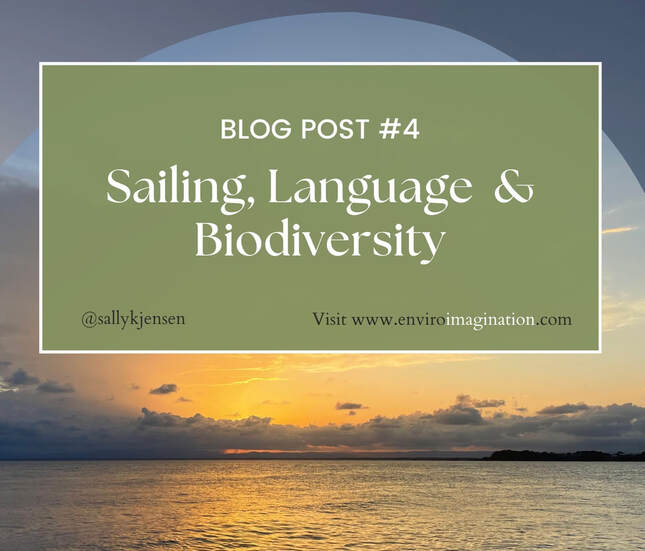
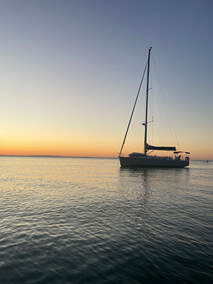
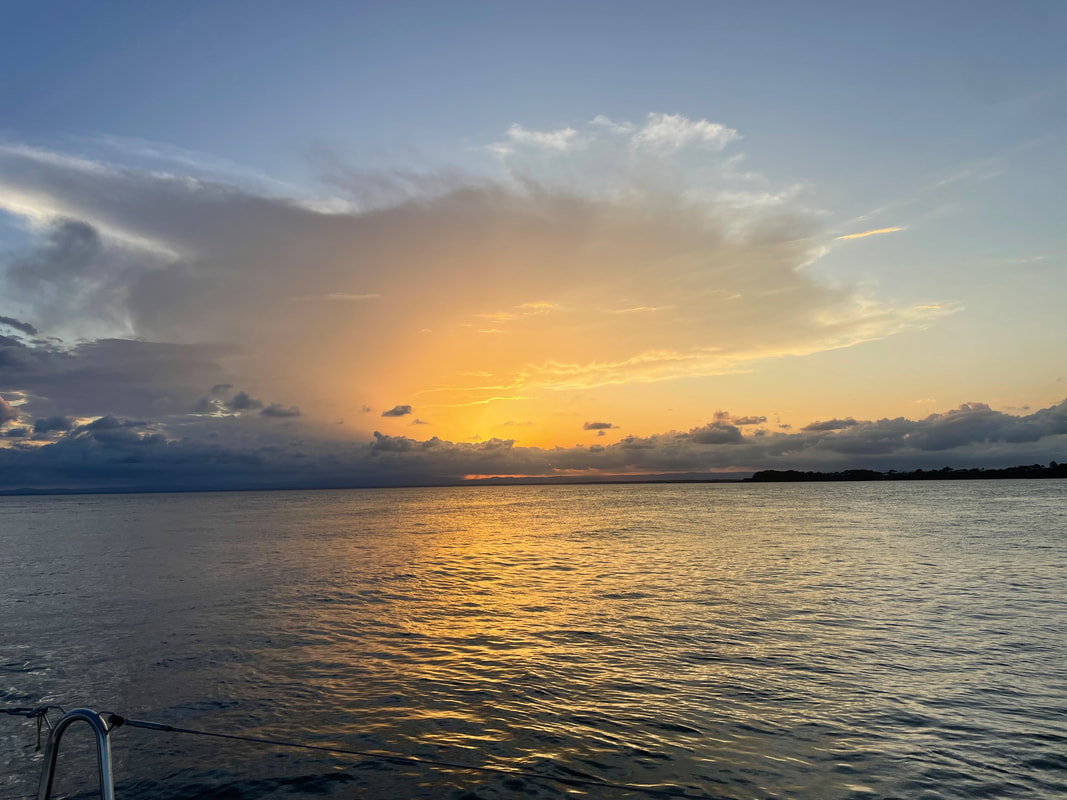
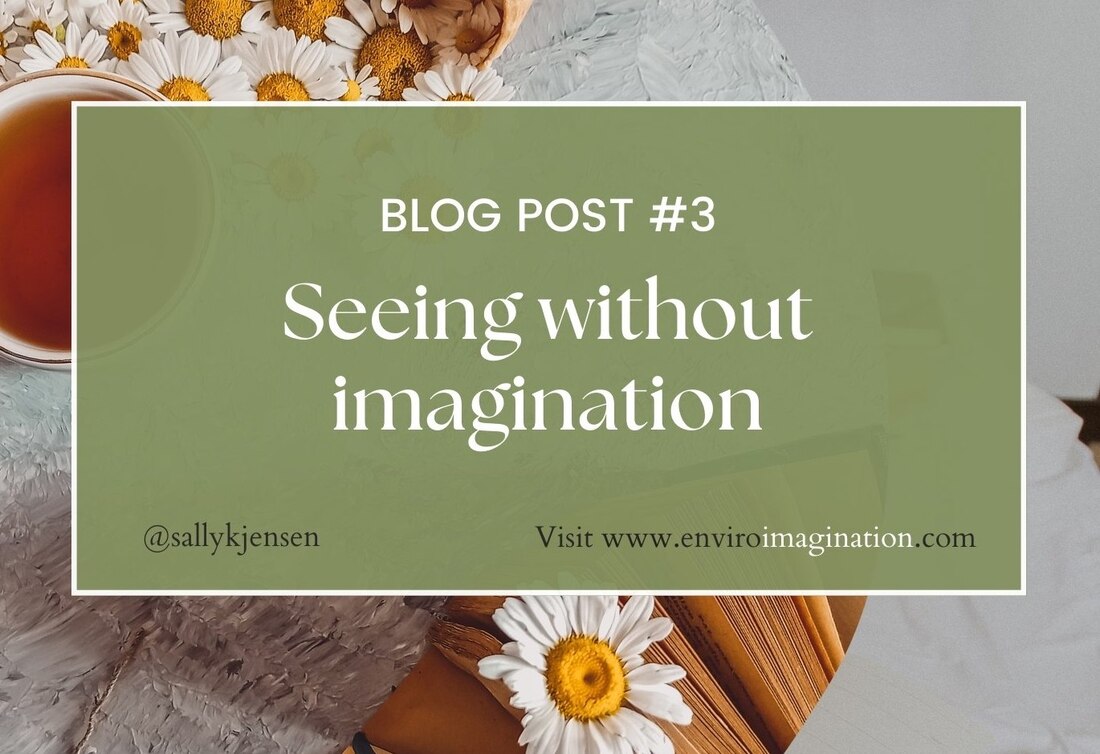
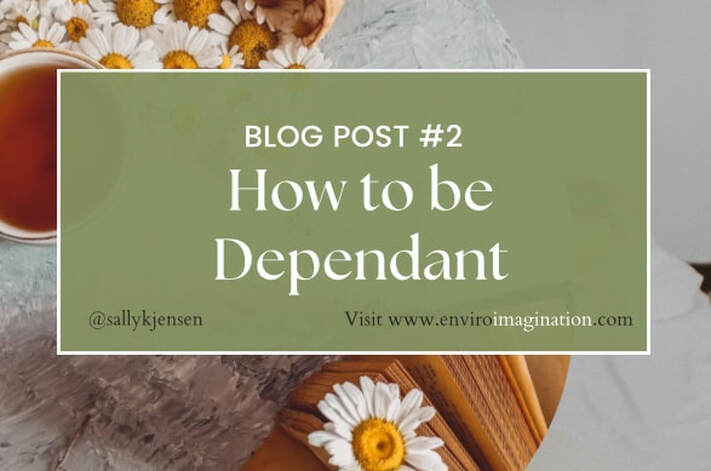
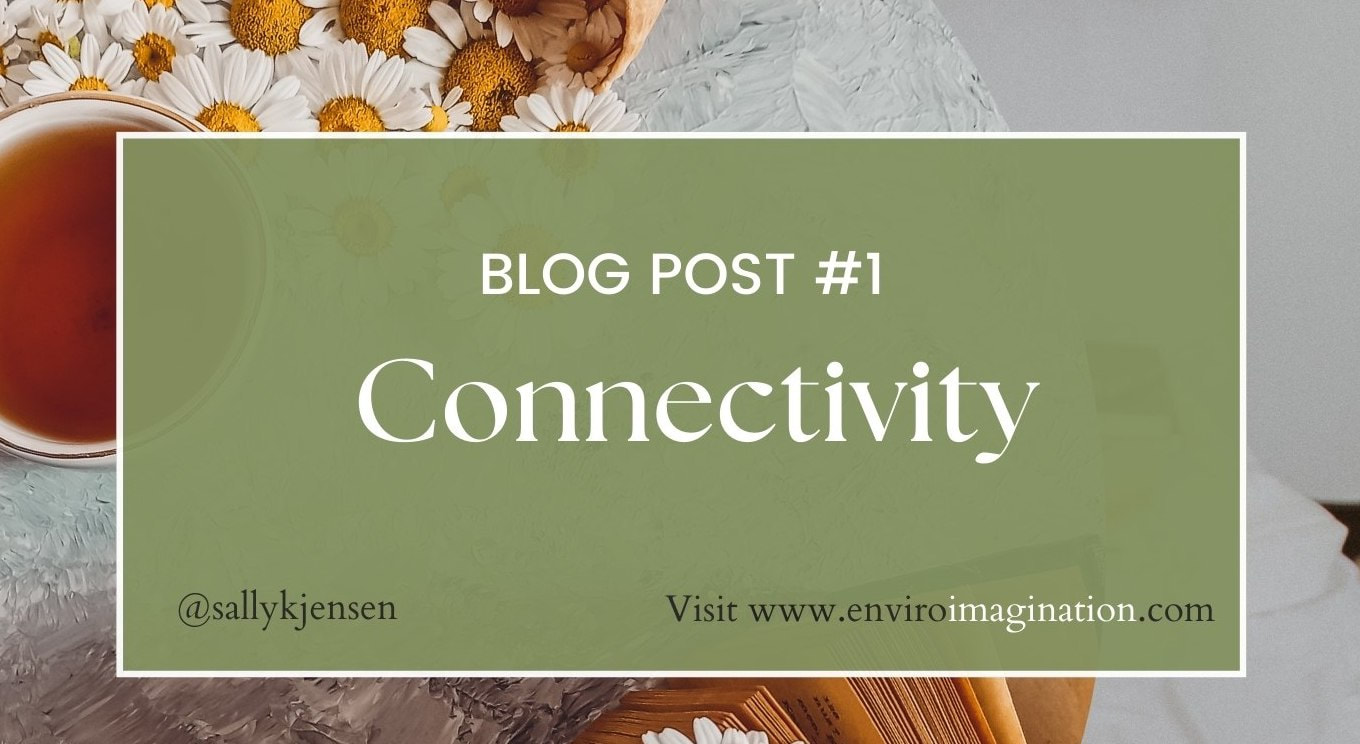
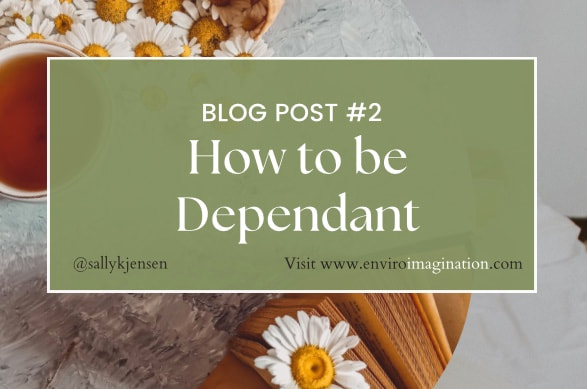
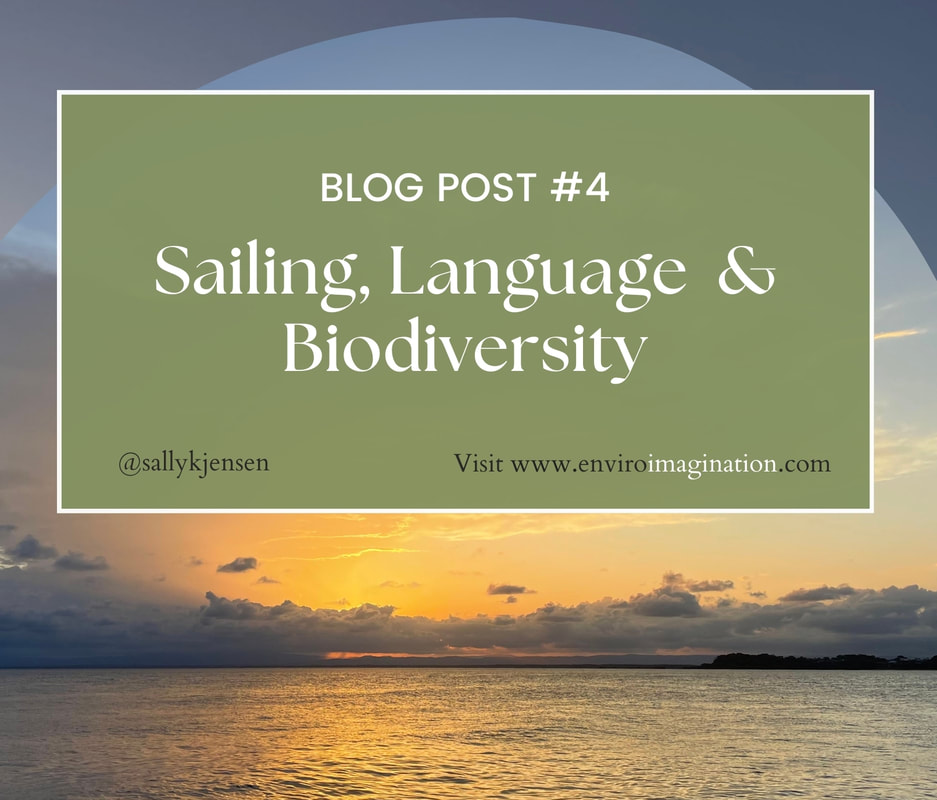
 RSS Feed
RSS Feed
